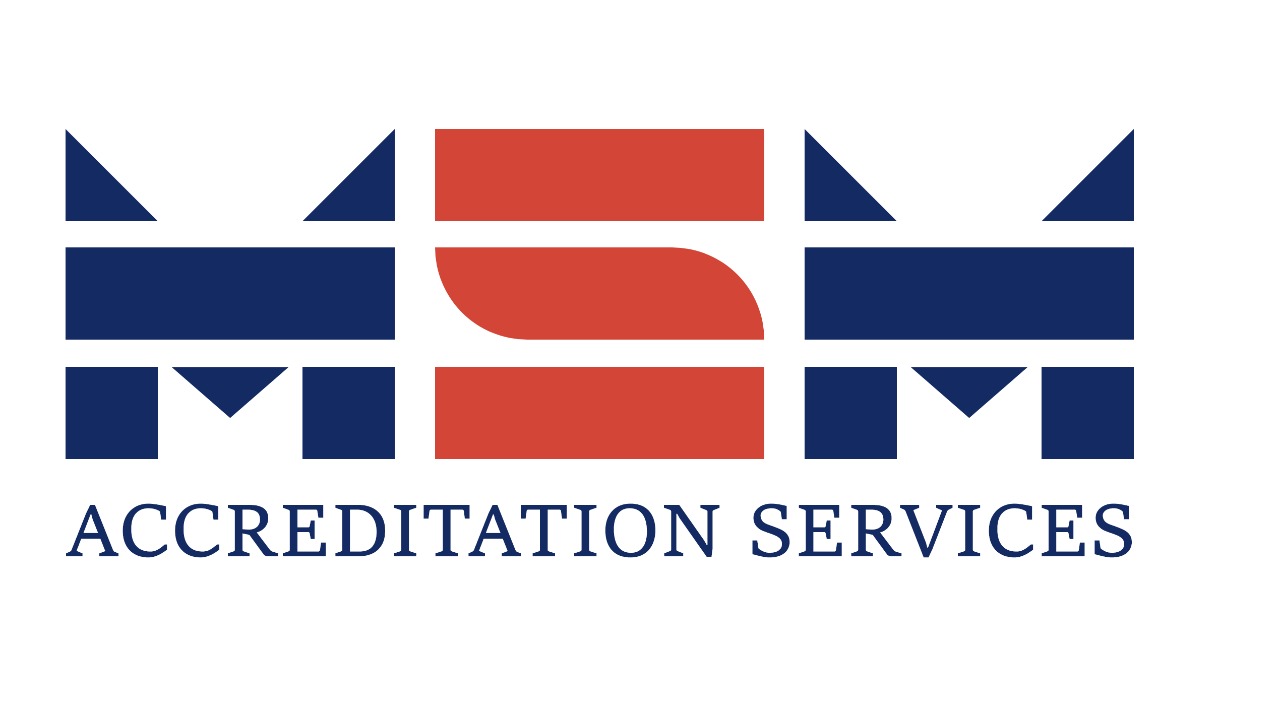This blog explores the importance of accreditation in healthcare industries, shedding light on its various aspects and benefits. As an expert in healthcare accreditation, MSM Accreditation Services plays a crucial role in guiding healthcare providers toward excellence.
I. Understanding Healthcare Accreditation
Defining Healthcare Accreditation
What is accreditation in Healthcare? Healthcare accreditation is a voluntary process in which healthcare organizations undergo external evaluation by an authorized accrediting body. The evaluation assesses the organization’s adherence to specific standards and criteria established to promote quality care, patient safety, and continuous improvement.
Accreditation is not a one-time achievement but an ongoing commitment to maintaining and enhancing standards over time.
The Role of Accrediting Bodies
Accrediting bodies are independent organizations responsible for developing and administering accreditation programs. They collaborate with healthcare providers to define accreditation standards, review processes, and conduct evaluations.
These bodies often consist of experts from various healthcare disciplines, including clinicians, administrators, and patient advocates, ensuring a comprehensive and unbiased approach to evaluation.
II. Benefits of Accreditation in Healthcare Industries
Enhanced Patient Safety
Patient safety is the cornerstone of healthcare quality. Accreditation helps healthcare organizations identify and rectify potential risks, reducing adverse events and medical errors. By implementing standardized protocols and best practices, accredited facilities provide a safer environment for patients, leading to better outcomes and increased trust among the public.
Improved Quality of Care
Accreditation encourages a culture of continuous quality improvement. It compels healthcare providers to critically assess their processes, workflows, and patient outcomes regularly. As a result, organizations strive for excellence, resulting in better overall healthcare quality and higher patient satisfaction.
Increased Operational Efficiency
Through accreditation, healthcare organizations streamline their operations and eliminate redundancies. By adhering to established standards, they optimize workflows and resource allocation, leading to cost savings and improved efficiency in delivering care.
Attraction and Retention of Talent
Healthcare professionals seek to work in environments that prioritize quality, safety, and professional development. Accreditation enhances an organization’s reputation, making it an attractive destination for skilled and dedicated healthcare workers.
Additionally, it fosters a culture of ongoing learning, promoting staff retention and professional growth.
III. The Impact of Accreditation on Healthcare Organizations
Organizational Transformation
Seeking accreditation often initiates a transformative journey for healthcare organizations. It requires a comprehensive evaluation of existing processes and a commitment to aligning with industry best practices. As a result, organizations undergo positive changes that resonate throughout their entire structure.
Fostering a Culture of Quality
Accreditation fosters a culture that values quality at all levels of the organization. From frontline staff to leadership, everyone becomes accountable for upholding the highest standards. This culture of quality permeates daily operations, leading to continuous improvement and better patient outcomes.
Public Trust and Reputation
Accreditation is an external validation of an organization’s commitment to excellence. Achieving accreditation communicates to the public that the facility has met rigorous standards and can be trusted to provide safe and high-quality care. It enhances the organization’s reputation and distinguishes it from non-accredited competitors.

IV. The Importance of MSM Accreditation Services
Expert Guidance and Support
MSM Accreditation Services plays a crucial role in the accreditation process, offering expert guidance and support to healthcare organizations. With a team of seasoned professionals, MSM provides insights into accreditation standards, readiness assessments, and implementation strategies, ensuring a seamless accreditation journey.
Tailored Solutions
Recognizing that each healthcare organization is unique, MSM Accreditation Services tailors its approach to meet specific needs. By understanding the organization’s strengths and areas for improvement, MSM provides customized solutions that facilitate successful accreditation outcomes.
Staying Updated with Industry Changes
The healthcare landscape is continuously evolving, with new technologies, protocols, and best practices emerging. MSM Accreditation Services stays abreast of these changes and updates accreditation strategies accordingly, helping healthcare organizations remain at the forefront of industry advancements.
V. Types of Healthcare Accreditation
Hospital Accreditation
Hospital accreditation is one of the most common types of accreditation sought by healthcare organizations. It applies to general hospitals, specialty hospitals, and medical centers. Hospital accreditation evaluates various aspects of care delivery, including patient safety, infection control, clinical outcomes, and the availability of specialized services.
Achieving hospital accreditation instills confidence in patients and their families, knowing that they are receiving care from an organization committed to high standards of quality and safety.
Ambulatory Care Accreditation
Ambulatory care facilities, such as outpatient clinics, surgical centers, and diagnostic imaging centers, also pursue accreditation. Ambulatory care accreditation assesses the quality of care provided in these settings, focusing on patient experience, care coordination, and adherence to best practices.
Accredited ambulatory care facilities offer patients the convenience of receiving specialized services without hospitalization while ensuring the same level of safety and quality as inpatient settings.
Behavioral Health Accreditation
Behavioral health facilities, including mental health centers and substance abuse treatment centers, also seek accreditation. Behavioral health accreditation emphasizes patient-centered care, individualized treatment plans, and adherence to evidence-based practices.
Accredited facilities in this category prioritize patient well-being and recovery, promoting mental health support and rehabilitation.

Long-Term Care Accreditation
Long-term care facilities, such as nursing homes and assisted living facilities, undergo accreditation to demonstrate their commitment to providing high-quality care to elderly and dependent individuals. Long-term care accreditation focuses on patient rights, resident safety, staff training, and a person-centered approach to care.
Accredited long-term care facilities prioritize the well-being and dignity of their residents while providing a supportive environment.
Contact the best healthcare accreditation agency in New Jersey, USA.
VI. The Accreditation Process
Self-Assessment and Preparation
The accreditation process typically begins with a self-assessment by the healthcare organization. During this phase, the organization evaluates its existing processes, policies, and procedures against the accreditation standards set by the accrediting body.
Areas for improvement are identified, and action plans are developed to address any gaps.
Application and Documentation Submission
After the self-assessment, the healthcare organization formally applies for accreditation with the chosen accrediting body. The application process involves submitting detailed documentation and evidence that demonstrate compliance with the accreditation standards.
This documentation may include policies, protocols, training records, and quality improvement initiatives.
On-Site Survey and Evaluation
Once the application and documentation are reviewed, the accrediting body conducts an on-site survey or evaluation. During the survey, a team of experienced surveyors visits the healthcare facility to assess its compliance with the accreditation standards.
They conduct interviews with staff, observe care delivery processes, and review patient records to ensure that the organization meets the required criteria.
Accreditation Decision
Following the on-site survey, the accrediting body evaluates the findings and decides whether to grant accreditation. If the organization meets all the required standards, it is awarded accreditation for a specific period, often ranging from one to three years.
In cases where minor issues are identified, the organization may receive conditional accreditation, with a requirement to address these issues within a specified timeframe.
VII. Maintaining Accreditation and Continuous Improvement
Continuous Compliance Monitoring
Accredited healthcare organizations must maintain their compliance with the accreditation standards throughout the accreditation period. Accrediting bodies may conduct periodic reviews or unannounced visits to ensure that the organization continues to meet the required standards.
This ongoing monitoring ensures that the commitment to quality and patient safety remains consistent.
Quality Improvement Initiatives
Accreditation is not just about meeting minimum requirements; it encourages healthcare organizations to strive for continuous improvement. Accredited facilities often implement quality improvement initiatives to address areas that can be further enhanced. These initiatives aim to optimize processes, reduce errors, and improve patient outcomes.
Staff Training and Development
Healthcare organizations that value accreditation invest in the training and development of their staff. Accredited facilities provide opportunities for their employees to stay updated with the latest medical advancements, best practices, and safety protocols. Well-trained staff are better equipped to provide high-quality care and adapt to changes in the healthcare landscape.
VIII. The Influence of Accreditation on Healthcare Policy and Regulation
Accreditation has a far-reaching impact beyond individual healthcare organizations. Governments and regulatory bodies often consider accreditation standards and practices when formulating healthcare policies and regulations. Accreditation sets a benchmark for quality and safety, influencing the overall improvement of the healthcare system.
Conclusion
Accreditation in healthcare industries is a fundamental aspect that promotes patient safety, improves quality of care, and enhances organizational efficiency. Healthcare organizations that seek accreditation demonstrate a commitment to excellence and undergo transformative journeys that positively impact their operations and reputation.
MSM Accreditation Services, as a reliable partner, empowers healthcare providers with expert guidance and tailored solutions, ensuring they thrive in their pursuit of accreditation and continue to provide exceptional care to their patients. Embracing accreditation is not just a choice but a responsibility that yields substantial benefits for healthcare providers, professionals, and most importantly, patients.

